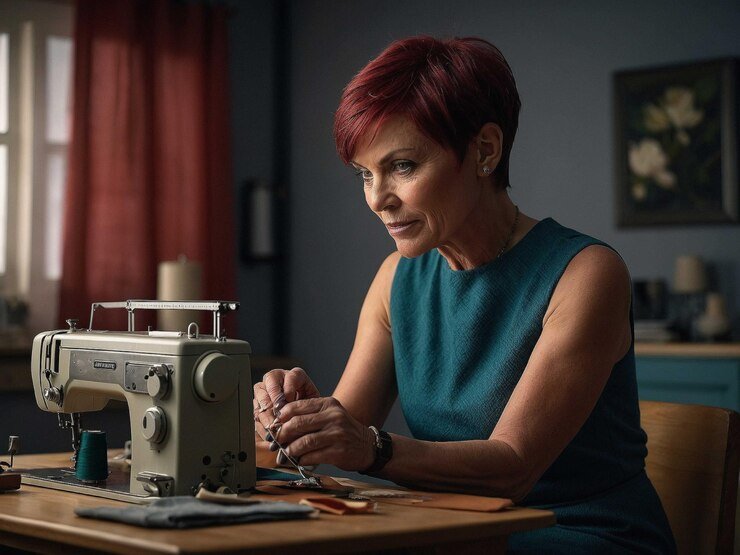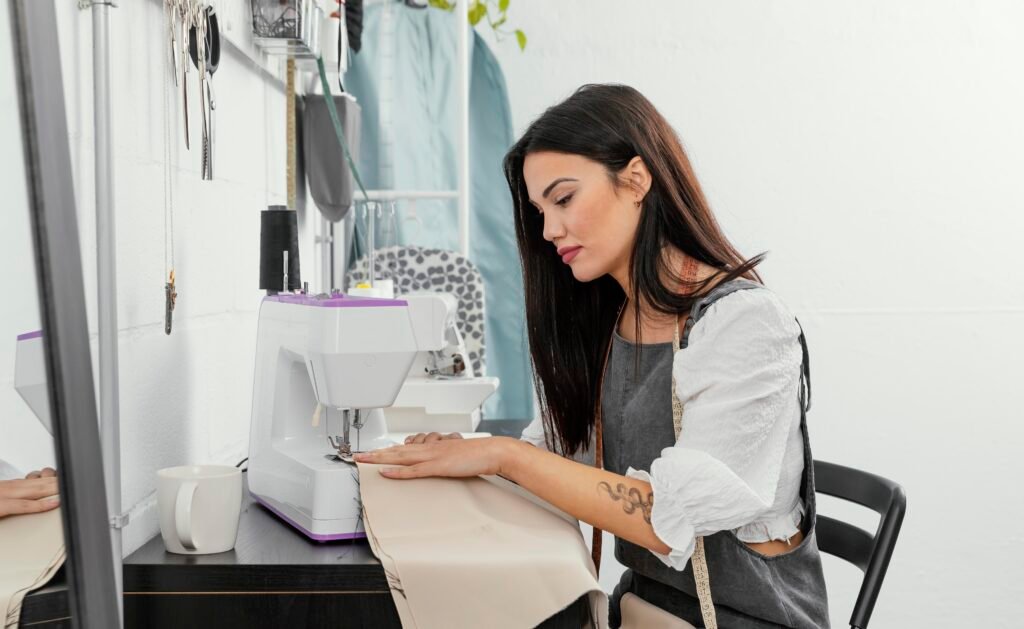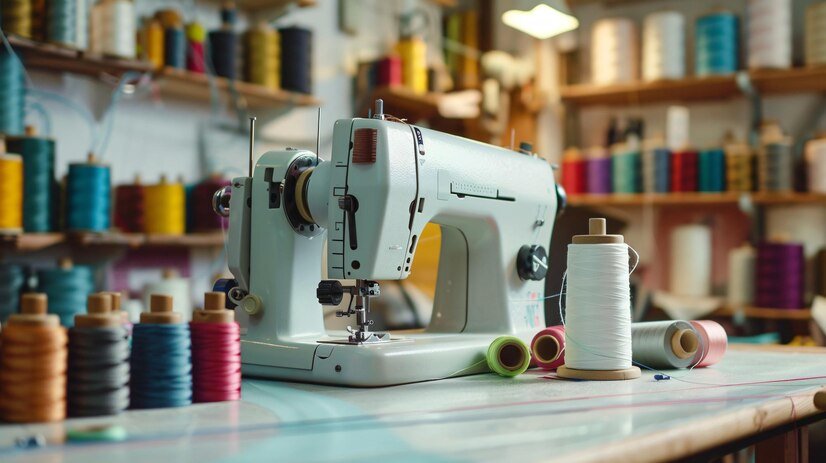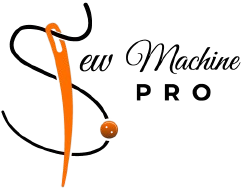
Looking to dive into sewing with the ideal machine? Whether you’re new or experienced, finding the best sewing machine is crucial for bringing your projects to life. It’s all about finding the right features and ease of use to make your sewing effortless and enjoyable. In this guide, we’ll explore the top sewing machines available, helping you pick the perfect one to unleash your creativity and tackle any sewing challenge with confidence.
Top Sewing Machines for Beginners

When choosing a sewing machine as a beginner, consider your specific needs and the types of projects you plan to tackle. Look for features such as ease of threading, stitch variety, durability, and additional accessories like extra presser feet. These top-rated machines provide a solid foundation for learning and mastering sewing skills, ensuring a rewarding and enjoyable sewing experience from the start.
1. Brother CS6000i
- Features: The Brother CS6000i stands out with its versatile functionality, boasting 60 built-in stitches that include essential, decorative, and quilting stitches. It features an automatic needle threader, adjustable sewing speed control, and a detachable wide table for handling larger projects.
- Ease of Use: Designed for beginners, it includes a user-friendly LCD display for easy stitch selection and adjustment. The automatic threading system simplifies setup, while the free arm allows for sewing cuffs and sleeves effortlessly.
- Affordability: Priced competitively, the CS6000i offers excellent value for its range of features, making it a favourite among beginners looking to explore various sewing techniques.
2. Singer 4423
- Features: The Singer 4423 is known for its robust build with a heavy-duty metal frame and a powerful motor capable of sewing through multiple layers and heavy fabrics smoothly. It features 23 built-in stitches, including basic, decorative, and buttonhole stitches.
- Ease of Use: Ideal for beginners, it includes an automatic needle threader and a top drop-in bobbin system for hassle-free setup. The adjustable presser foot pressure control allows for handling different fabric thicknesses with ease.
- Affordability: Despite its heavy-duty capabilities, the Singer 4423 remains affordable, offering durability and reliability for beginners tackling a variety of sewing projects.
3. Janome 2212
- Features: The Janome 2212 is a mechanical sewing machine known for its simplicity and durability. It features 12 built-in stitches, including a four-step buttonhole, and a front-loading bobbin system for easy threading.
- Ease of Use: Straightforward in design, it’s perfect for beginners learning the basics of sewing. The free arm capability enhances versatility for handling smaller, detailed projects.
- Affordability: Positioned at an accessible price point, the Janome 2212 is valued for its sturdy build and consistent performance, making it an excellent choice for entry-level sewers.
Best Sewing Machines for Intermediate Users

As you advance in your sewing skills, upgrading to a more versatile and feature-rich machine can greatly enhance your crafting experience. These top sewing machines for intermediate users are designed to offer advanced features, flexibility, and reliability:
1. Brother SE600
- Features: The Brother SE600 is a combination sewing and embroidery machine, offering 103 built-in stitches and 80 embroidery designs. It features a 4″ x 4″ embroidery area, a color touchscreen LCD display, automatic needle threader, and a drop-in top bobbin system.
- Versatility: Ideal for intermediate users, it allows for both sewing and embroidery projects with ease. The machine includes seven quick-change sewing feet and USB connectivity for importing additional designs.
- Performance: Known for its smooth and precise stitching, the SE600 is suitable for quilting, garment construction, and intricate embroidery work.
2. Singer Quantum Stylist 9960
- Features: The Singer Quantum Stylist 9960 offers 600 built-in stitches, including basic, decorative, and stretch stitches. It features an automatic needle threader, a top drop-in bobbin system with clear cover, and a built-in stitch reference guide.
- Ease of Use: Designed for versatility, it includes 13 one-step buttonhole styles and adjustable stitch length and width settings. The extension table provides extra space for larger projects, while the electronic autopilot feature allows for hands-free sewing.
- Performance: With its heavy-duty metal frame and high sewing speed of 850 stitches per minute, the Quantum Stylist 9960 delivers precise and professional results for intermediate sewers tackling a variety of projects.
Best Sewing Machines for Advanced Users
Advanced sewers require machines that offer precision, speed, and durability to handle complex projects and professional-level craftsmanship. These top sewing machines for advanced users are renowned for their performance, reliability, and advanced features:
1. Janome Memory Craft 6700P
- Features: The Janome Memory Craft 6700P is a high-performance sewing machine designed for professional-grade sewing. It features 200 built-in stitches, including utility, decorative, and alphanumeric stitches. It offers a spacious 10″ work area to handle large quilts and projects with ease.
- Advanced Features: Equipped with an AcuFeed Flex feeding system for precise fabric handling, a variable zigzag for free motion quilting, and a built-in needle threader for convenience.
- Durability: Known for its robust build and durability, the Memory Craft 6700P ensures consistent performance and reliability even with heavy use.
2. Juki TL-2010Q
- Features: The Juki TL-2010Q is a high-speed sewing and quilting machine designed for professional-level sewing enthusiasts. It features a single needle lockstitch machine with a maximum sewing speed of 1,500 stitches per minute.
- Precision: Known for its straight stitch sewing precision, it includes an automatic thread trimmer and adjustable foot pressure for handling various fabric thicknesses.
- Performance: Ideal for advanced users tackling large quilting and garment projects, the TL-2010Q offers exceptional stitch quality and speed, making it a favourite among serious sewers.
How to Choose the Best Sewing Machine for Your Needs

Choosing the right sewing machine depends on your skill level and the type of projects you plan to tackle. For beginners entering the world of sewing, several key features can greatly simplify the learning process and enhance your overall experience:
Ease Of Use
Firstly, ease of use is critical. Look for sewing machines with straightforward controls and clear instructions. A simple threading system and easy stitch selection mechanisms can save time and frustration, allowing you to focus more on your projects and less on machine operation.
Basic Stitch Options
Basic stitch options are essential. Machines that offer foundational stitches like straight, zigzag, and buttonhole stitches cover most beginner sewing needs. These stitches are versatile and provide a solid foundation for learning different sewing techniques.
Automatic Features
Automatic features such as needle threaders and bobbin winding are invaluable for beginners. They streamline setup processes that can otherwise be tedious and challenging, making it easier to get started on your sewing projects quickly and efficiently.
Durability And Stability
Durability and stability are also important considerations. Choose a sewing machine that is sturdy and stays in place while in use. This stability ensures smoother stitching and reduces the likelihood of errors caused by machine vibrations.
Additional Resources
Additionally, consider the availability of instructional resources and customer support. Some machines come with instructional DVDs, manuals, or online tutorials that can help beginners learn how to operate their machines effectively and troubleshoot common issues.
Key Features for Intermediate Sewers
Intermediate sewers, who have some experience under their belt and are looking to expand their skills, should consider the following key features when choosing a sewing machine:
Stitch Variety
A wide range of built-in stitches is essential. Look for machines that offer not only basic stitches like straight and zigzag but also decorative stitches, stretch stitches, and specialty stitches for quilting and garment embellishments. This variety allows for creativity and versatility in your sewing projects.
Adjustable Settings
Machines with adjustable settings for stitch length, width, and speed provide flexibility. These features are crucial for fine-tuning your stitches according to different fabric types and sewing techniques. Being able to customise these settings enhances control and precision in your sewing projects.
Additional Accessories
Consider machines that come with extra accessories such as additional presser feet (like walking feet or quilting feet), extension tables for handling larger projects, and specialty feet for tasks like piping or zipper insertion. These accessories expand the capabilities of your machine and allow you to tackle a broader range of sewing projects.
Computerised Features
Many intermediate-level sewing machines are computerised, offering features like LCD screens for easy stitch selection and customization, memory functions for saving stitch settings, and programmable stitch sequences. Computerised machines simplify complex sewing tasks and make it easier to achieve professional-quality results.
Durability and Build Quality
Choose a sewing machine with a sturdy build and durable materials. A strong frame ensures stability and reduces vibrations while sewing, which is especially important when working with thicker fabrics or multiple layers. A durable machine is an investment that will support your sewing journey for years to come.
Advanced Features
Some intermediate machines offer advanced features such as automatic thread cutting, needle up/down positioning, and speed control options. These features enhance efficiency and precision in your sewing, making it easier to tackle more intricate projects and achieve professional-level results.
What Advanced Sewers Should Look For
For advanced sewers who are experienced and proficient in various sewing techniques, choosing the right sewing machine involves considering advanced features and capabilities that can enhance productivity, precision, and creativity. Here are key features to prioritise:
High-Speed Performance
Look for sewing machines with high-speed capabilities, typically measured in stitches per minute (SPM). A faster sewing speed allows for quicker completion of projects and efficient handling of large volumes of sewing tasks.
Precision Stitching Control
Advanced sewers benefit from machines with precise stitch control features. This includes adjustable stitch length and width settings, precise tension adjustment, and the ability to fine-tune stitch quality for different fabrics and sewing techniques.
Specialized Stitch Options
Machines with a wide variety of built-in stitches, including decorative stitches, alphanumeric stitches, and specialty quilting or embroidery stitches, expand creative possibilities. Advanced sewers often require machines that can handle complex stitch patterns and techniques with ease.
Professional-Level Features
Look for advanced features like automatic thread trimming, thread tension settings for different thread types, and multiple needle positions. These features contribute to professional-quality stitching and allow for intricate sewing manoeuvres.
Durability and Stability
Choose a sewing machine with a durable construction and stable base. Advanced sewers often work with heavy fabrics, multiple layers, and long sewing sessions, so a robust machine that can handle continuous use without overheating or vibration is essential.
Embroidery and Quilting Capabilities
Many advanced machines offer built-in embroidery and quilting functions or compatibility with embroidery units and quilting accessories. These features allow for custom designs, intricate patterns, and professional-quality finishes in quilting and embroidery projects.
Advanced Control and Automation
Look for machines with advanced control features such as programmable stitch sequences, memory functions for saving custom settings, and touchscreen interfaces for intuitive operation. These features streamline complex sewing tasks and enhance workflow efficiency.
Additional Accessories and Attachments
Consider machines that come with a range of additional accessories and attachments, such as specialty presser feet (walking feet, free-motion quilting feet), extension tables, and multiple bobbin holders. These accessories expand the versatility of the machine and support advanced sewing techniques.
Service and Support
Ensure the sewing machine is backed by reliable customer support and service options. Advanced machines may require occasional maintenance or troubleshooting, so access to manufacturer support and resources is valuable.
FAQs
Q. Which Brand Makes the Best Sewing Machine?
Different sewing machine brands excel in various aspects, such as durability, features, and customer support. Brands like Brother, Singer, Janome, and Juki are often praised for their reliability and performance across different user levels.
Q. What Is the Best Sewing Machine for Beginners?
For beginners, sewing machines that are easy to use with essential features like basic stitches, automatic threading, and simple controls are ideal. Models such as the Brother CS6000i and Singer 4423 are popular choices due to their user-friendly design and affordability.
Q. How Long Do Sewing Machines Last?
The lifespan of a sewing machine depends on several factors, including usage frequency, maintenance, and build quality. With proper care and regular maintenance, a well-made sewing machine can last for many years, often exceeding a decade of reliable use.
Q. What Features Should I Look for in a Quilting Sewing Machine?
If you’re interested in quilting, consider sewing machines with features like a wide throat space for handling large quilts, a walking foot for even fabric feeding, adjustable stitch length and width for quilting patterns, and specialty quilting stitches.
Q. Can Sewing Machines Handle Thick Fabrics Like Denim or Leather?
Yes, sewing machines with strong motors and heavy-duty construction can handle thick fabrics such as denim, leather, and canvas. Look for machines with adjustable presser foot pressure and a strong needle to sew through these materials effectively.
Q. Do I Need a Computerised Sewing Machine for Advanced Projects?
Computerised sewing machines offer advanced features like programmable stitch sequences, automatic thread cutting, and precise stitch control, making them beneficial for complex sewing projects. However, mechanical machines with robust build quality can also handle advanced tasks effectively.
Find Your Best Sewing Machine Today
Are you ready to take your sewing skills to the next level? Whether you’re just starting out or an experienced crafter, finding the right sewing machine can make all the difference. Here are our top picks tailored to different skill levels:
For Beginners
Discover easy-to-use machines perfect for getting started like Brother CS6000i – A user-friendly machine with essential features for beginners or Singer 4423 – Known for its simplicity and durability, ideal for beginners learning the ropes.
For Intermediate Sewers
Explore machines that offer versatility and advanced features like Brother SE600 – Combines sewing and embroidery with a wide range of stitches or you can check Singer Quantum Stylist 9960 – Offers 600 built-in stitches and advanced controls for intermediate projects.
For Advanced Users
Invest in high-performance machines designed for precision and complexity like Janome Memory Craft 6700P – Professional-grade with advanced quilting and sewing features or you can look at the advanced features of Juki TL-2010Q – High-speed sewing and quilting machine renowned for its durability and stitch quality.
